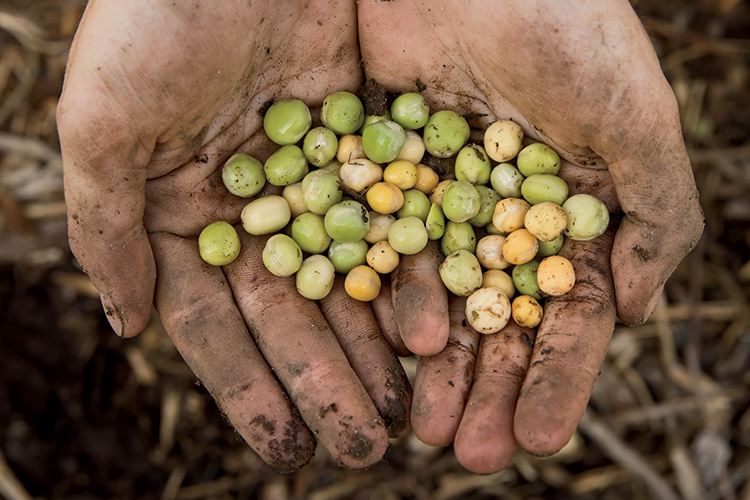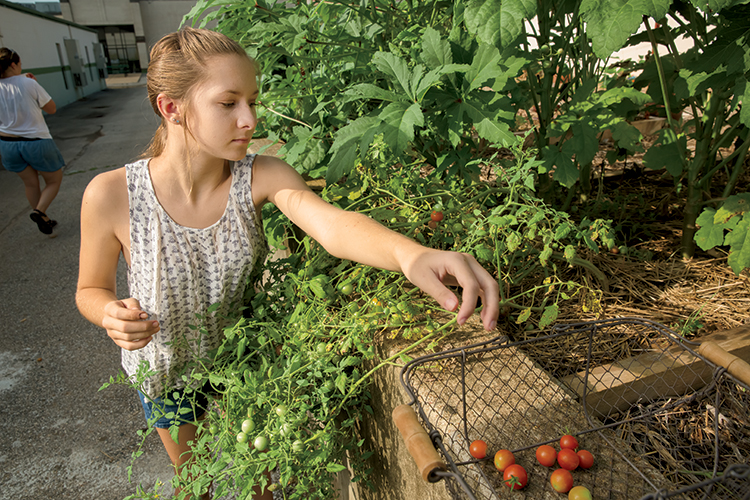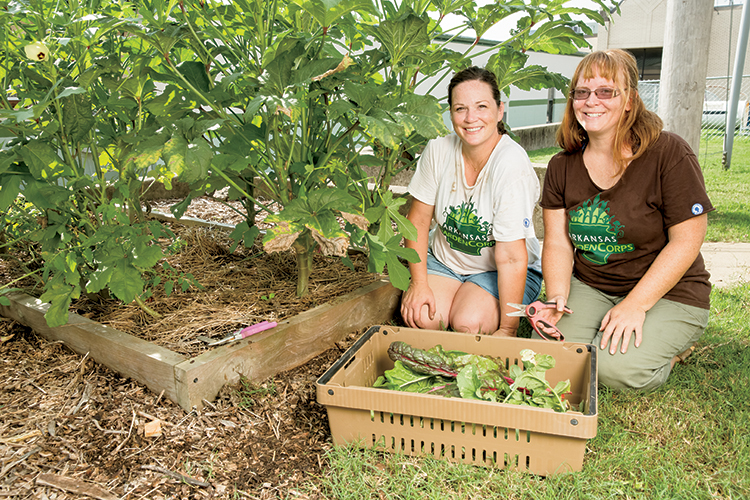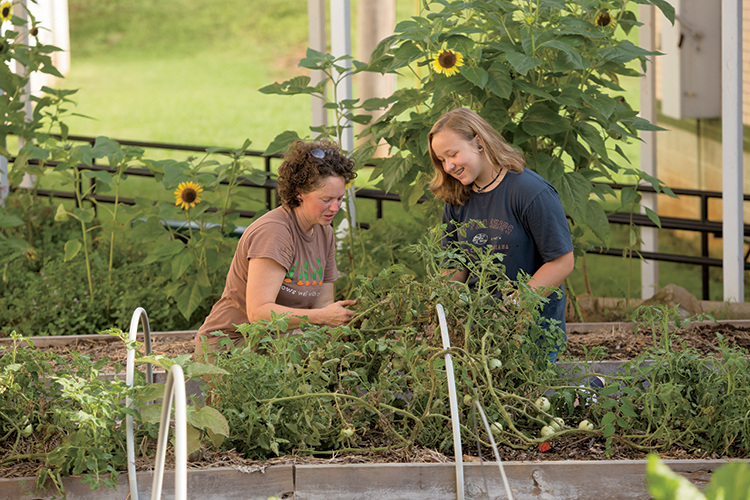Home > Arkansas > Arkansas Ag Education > Arkansas Schools Receive Lessons From the Garden
Arkansas Schools Receive Lessons From the Garden

Along with reading, writing and arithmetic, an increasing number of schools in Arkansas are adding lettuce, kale and tomatoes to their everyday curriculums.
On many elementary, middle and high school campuses across the state, school gardens are becoming as commonplace as playgrounds and parking lots.
That is due largely to the state’s Farm to School program, which was established in 2009 with funding from the USDA’s Agricultural Research Service for the Delta Garden Study, and further developed through additional USDA funding for the Arkansas Grow Healthy Study.
Now, the relatively new Arkansas Grown School Garden of the Year Contest has sparked additional interest from not only teachers and students, but also from the community as a whole.
“It serves such a good purpose and helps show the importance of agriculture,” Arkansas Secretary of Agriculture Wes Ward says of the School Garden of the Year program. “We’re excited about the program, and I think we’ll be able to keep it around for a long time.”
Funded by Farm Credit and coordinated by the Arkansas Agriculture Department, the program has experienced growth since it started in 2014.
The number of applicants for the 2016 contest nearly matched those from the first two years combined.
“It’s growing as people are starting to hear about it and learn more about it,” Ward says. “Whether they win or not, schools have that incentive to do a garden. It gives parents and teachers a different argument to go to the principals or superintendents to ask if a particular piece of land could be used for a garden.”
In a sense, that’s where Yellville- Summit High School agriculture teacher Katherine Quinn comes in. Also serving as the school’s garden program specialist and FFA advisor, she has helped to foster one of Arkansas’s top school gardens, funded initially in 2012 as a Delta Garden Study research site. In fact, the K-12 school was selected as the state’s overall winner for 2015 in the School Garden of the Year Contest, receiving $1,500 from Farm Credit.
 “I think the reason we were awarded as the winner is the scale of our gardens, the reach they have,” Quinn says. And as a preschool through 12th-grade campus, “we have access to a range of students, so the impact can trickle up through the school system,” she says.
“I think the reason we were awarded as the winner is the scale of our gardens, the reach they have,” Quinn says. And as a preschool through 12th-grade campus, “we have access to a range of students, so the impact can trickle up through the school system,” she says.
“We’re really focusing on Farm to School, which is teaching kids how to garden, connecting their learning with the garden setting, getting that food that they raise into the cafeteria (and elsewhere).” The Yellville-Summit campus is dotted with four gardens, growing primarily fruit and vegetables but also flowers.
It has two demonstration gardens used for garden-based education, as well as raised-bed gardens, a high tunnel and a greenhouse. Quinn and her students have also been developing plans to expand into aquaponics.
“Since putting in the garden in 2012, we’ve produced over 5,500 pounds of food that’s gone to feed our children and the community,” Quinn says. “It’s helping students bring learning to life, getting them out of the classroom and applying the material they’re learning in class to the garden.”
 ‘Incredible Learning Tools’
‘Incredible Learning Tools’
School gardens are part of the three-pronged approach of the Arkansas Farm to School program, which also focuses on food procurement that benefits local farmers and nutrition education.
The program’s practices are being used in nearly 200 schools in the state and affect around 95,600 students.
“We work hard to make connections between schools and farmers,” says Jenna Rhodes, program coordinator for the Childhood Obesity Prevention Research Program at the Arkansas Children’s Research Institute, which oversees the Farm to School program.
 “School gardens are really a great hands-on way for not only students, but also for parents, teachers, school boards and communities, to really get behind food knowledge, nutritional education and physical activity,” Rhodes adds. “School gardens really do it all. They’re incredible learning tools.”
“School gardens are really a great hands-on way for not only students, but also for parents, teachers, school boards and communities, to really get behind food knowledge, nutritional education and physical activity,” Rhodes adds. “School gardens really do it all. They’re incredible learning tools.”



